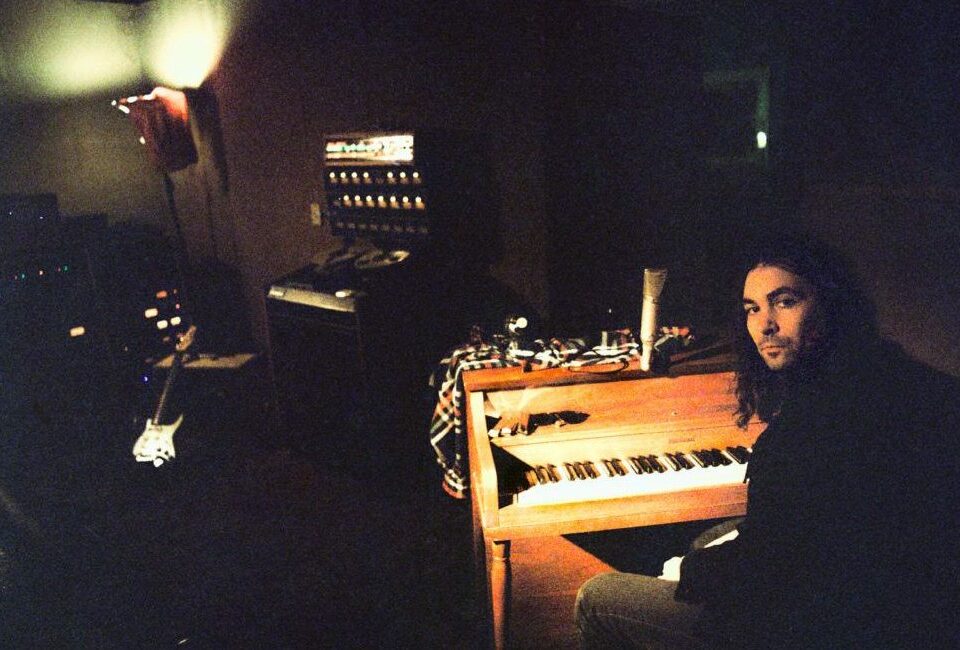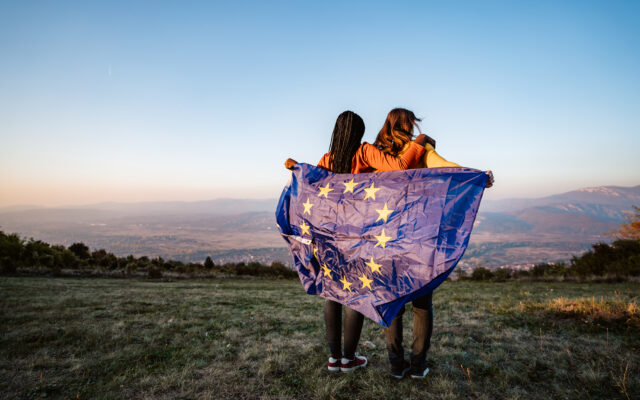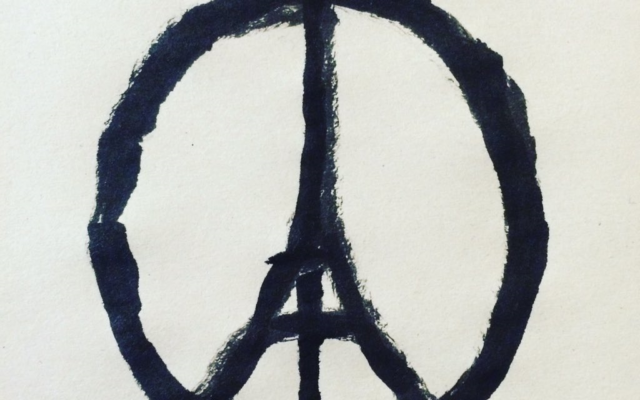New colleagues had returned to their families at five, leaving me, the trainee, to another long evening that pulled itself over a drab suburb like a heavy grey sheet; some nights I’d venture behind the lace curtain of a local pub only to spend a soundless hour at the bar. This night I put my ear to a small black radio and edged the needle millimetre by millimetre down the line of European cities, hoping for life in Lille, Luxembourg, Malmö, Hamburg, Dresden, anywhere, finding nothing but news until, at once, a hero’s voice and tinny beat broke through the hiss above the North Sea and carried me back to a place I had lost, reminded me who I was, and as the song faded away again, I pushed back the covers, reached out from the bed, fumbled for my diary and scribbled one line in the dark: “It’s going to be alright.”
Music saves lives. It can’t feed mouths, cure disease or stop wars, but it can lay hands on a shoulder, give hope, fight back, find the words and restore meaning. The singers and musicians who are able to lay their finger gently on the pain or decode the slow unravelling of an age are some of the best doctors we have, and mercifully every decade produces a new class.
The War on Drugs offer healing for our time. Led by the voice of Adam Granduciel, the band reaches into “the space between the beauty and the pain” on a new album, ‘A Deeper Understanding’. Their mystery hides in many places, somewhere between the epic sweep of love and loss and an antique enthusiasm for miniature detail; between wistful slide-guitar and midnight electronica; between songs of despair and joyous road-trip soundtracks with their punched-out beats, pumped-up synths and wide-eyed anthems. Many songs come in at eight minutes, some over ten – long enough to lose yourself and then realise you’ve arrived somewhere else, like a couple deep in conversation who look up to find they’ve left the forest and now stand high above the valley.
There is magic in duration: ‘Eyes to the Wind’ (from previous album, ‘Lost in the Dream’) spirals slowly outward, hypnotises and transports, pulled by a piano that marks out a path, each note and chord taking us one step further, higher and higher, on to some other place; the singer delivers his last words two thirds along the way and then steps aside, leaving the music to gather and climb alone; some beauty has been released and we can only watch.
In Granduciel’s world, electronic echos and sighs shimmer behind the melody, oddly at ease with a foreground that is often coloured folk, country or soft rock. These delicate sounds are not some flowery curves at the edge of the page but gentle explosions that push the emotion deeper, a surge not through power or volume but a minuscule shift in tone like a break in the clouds or the shadow of a faded memory that pinches the heart; a change of key finds the voice we would need to declare a love or reveal a truth.
God is in the detail. At 1’09” on the new album’s opening track, ‘Up All Night’, a thickening of sound announces that the journey is underway and belts should be buckled; on ‘Thinking of a Place’, an angel arrives at 7’48” to hover just above the melody, almost inaudible but necessary; the opening seconds of ‘In Reverse’ (‘Lost in the Dream’) are the heart-tugs of nostalgia by the ocean’s edge.
When the broad brush and the precision come together and Granduciel strives for somewhere just beyond reach, the result is sublime. Plain and innocent on first hearing, ‘Thinking of a Place’ almost comes to a halt halfway on its journey before we understand that this is a brief pause to gather strength for what comes next: a slow but resolute ascent to a quiet ecstasy where we not only reach a lover but become them:
See it through my eyes
Walk me to the water
Hold my hand and something turns to me
Love me every night
Drown me in the water
Hold my hand and there’s something turning me
See it through my eyes
Love me like no other
And hold my hand and something turns to me
And turns me into you.
Those still shell-shocked and stumbling from the wreckage of 2016 will take any scrap of meaning on offer. Resistance helps but it doesn’t heal; writing and film need time before they find the measure of a world’s unravelling. Music is always on call, and the War on Drugs offer momentary salvation, a forgiving embrace that slips gently inside the heart. They make a glorious sound amid doubt and solitude, not because it offers relief but because we’d be wrong to sit and wait for better times.
I reserved my first listen of the new album for last Saturday morning, a full day after its release, and I chose my time and place: the train journey from London to Nottingham and a hometown that now questions me for the first time. I’d avoided all the reviews and could now sit alone, plug in my headphones and press play. As the train pulled north from St Pancras and one more staging post on a country’s hesitation between past and future, I waited full of hope for the opening song to gather speed, and then, barely a minute later, I knew that it was going to be alright.









